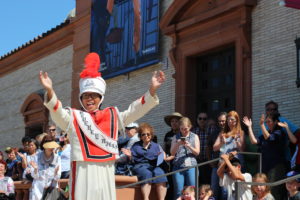In making the case for arts education, we advocates often point out how the arts can contribute to other key priorities for schools – such as deeper student engagement, collaboration, boosting attendance, and enhancing understanding in other core subjects. Our advocacy messages are all about connections and alignment. Yet, when it comes to our advocacy tactics we tend to be loners. We seem most comfortable with like-minded members of our pro-arts choir.
While we can take comfort commiserating with fellow true-believers, we may be doing a disservice to our cause. Communication is always a two-way street. Our intent and messages are filtered through the perspectives and biases of those hearing them. But I worry we spend too little time working with and listening to the perspectives of those outside our merry band of arts advocates. As a result, arts advocacy is sometimes perceived as self-serving. We appear more interested in the status of our content areas than in the lives of those we seek to educate. We use arts-first language more than we focus on the needs of children and youth. The passion for the arts in which we take such pride may sound shrill to those we seek to influence.
Perhaps we should start with why we want kids to have joy, meaning, and a sense of possibility and later mention how quality arts programs might contribute. That is a different frame than announcing we are here to fight for the band program or saving the music teacher. Influence is grounded in trust and credibility. Have we done enough to establish trust, credibility, and meaningful relationships with other educators, students and parents outside our existing pro-arts bubbles? While we are excited to see some low performing schools embrace the arts as part of a “turnaround” process, where have we been all the years when these same schools and communities have struggled with inadequate resources and civic neglect?
In the end, I am hoping we can do more to create and participate in “bigger tents,” coalitions of potential allies with whom we can make common cause in improving possibilities for all kids.


